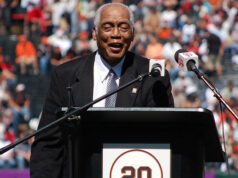A review of beliefs that negatively impact on an athletes willingness to use and outcome derived by consulting a sport psychologist. By Lina Vaisetaite
Myths are something we believe in, but that is not necessarily true. Those myths that I will concentrate upon next are important in the sense that they reflect athletes’ and coaches’ beliefs, which sometimes prevent from consulting a (sport) psychologist. More than that, I believe that by developing an awareness of and reviewing their beliefs, coaches and athletes would be more willing to approach sport psychologists or sport psychology consultants and that would be beneficial for both sides.
So, here they are – the myths…
Only “disturbed”, “weak”, “abnormal”, etc. athletes need psychological counseling. Sometimes I hear coaches’ or athletes’ comments that “mentally tough athletes manage problems themselves and that there’s no place in sports for the mentally weak athletes.” In some cases, an athlete would like to approach a psychologist, however he is afraid of what his coach and team/club mates would think of him, i.e. that they would think he is “psychologically weak” or “incapable of dealing with his problems himself.”
The truth is that psychology is a very broad notion. Although it is a rather new breed of science, during the last 100 years it has sustained a significant raise in branches – clinical psychology, organizational psychology, sport psychology, educational psychology, aviation psychology, war psychology and more. Each of these branches focuses on human behavior and experience in relevant situations.
For a time way too long we’d been hearing almost exceptionally about medicine psychology or clinical psychology and even more often than psychiatry. Therefore the first associations that come to mind for the word “psychology” are “remedy”, “psychotics”, “mentally disturbed” and similar. However, sport psychology has little to do with this! Sport psychologists’ primary focus is on “healthy” individuals… those athletes that do not have mental disorders. Sport aims at increasing human potential, not eliminating disorders. In other words, it looks at how athletes could be helped to fulfill their talents, make another step and improve their athletic performance.
In my personal opinion, no one is born “mentally tough”, but many become. Of course, some part of this process is played by the central nervous system and its qualities, by individual’s sensitivity. However most of the psychological features and skills are also trained and developed.
Psychological counseling/psychological preparation won’t make a difference. This attitude very often comes out indirectly, for example, when an athlete says: “we can try, it won’t get worse”. This saying reflects an expectation that changes probably won’t occur in the work with a psychologist. Unfortunately, there’s a high probability that without believing in the use of collaboration with a sport psychology counselor, a coach or an athlete will work less, will put in less effort which in turn will result in unessential changes which will “prove” once again how correct it was to believe that psychological counseling/preparation can’t bring in positive changes! And on the contrary – those who believe in the benefits of psychological counseling, try harder and really achieve desirable goals (e.g. learn how to deal with emotions under tense circumstances in competition, learn how to calm down when it’s critical to do so, etc.). This is known as self-fulfilling prophesy.
Psychologists are well aware of this phenomenon. It has been best reflected in the school research. In the beginning of the school year, school psychologists claimed they were making evaluations of pupils’ abilities. They would say who of the pupils were talented and who were not. The bottom line was that this judgment of whether a student was “talented” or not was totally accidental. It was not founded on the real evaluation of pupils’ abilities.
And guess what! After some time those, who were named “talented” really had better academic achievements than those who were assigned to the group of “not talented.” Why is that? It seems that teachers would pay more attention to those whom they thought to be more talented, they would let them answer more often, if those pupils were unsuccessful in some tasks, teachers would explain more patiently while they would “write off” those considered “not talented” although there were some even brighter pupils than those in the talented” group.
Another important thing to consider is that if psychological counseling or preparation is to be efficient, it needs to be of a high quality, that is, it needs to satisfy some requirements. One of the most important requirements is that psychological training be constant. Meeting with a counselor should take place regularly, however even that is not enough. An athlete himself should devote some time in every practice session and between them to advance his psychological skills, not just physical, technical or tactical aspects of athletic preparation. It is very common that during practice athletes are relaxed and behave, think or pay attention to other things than in the competition. No doubt, every practice can’t be tense – a human needs rest, jokes and so forth. However during practice it is very important to put one self into situations (at least by the means of visualization) that would resemble “competitive situations” in order to learn how to deal with them.
It is important to devote enough time for psychological preparation. Five minutes a week is not enough. If an athlete is working on some psychological skill (e.g. visualization), then specific psychological exercises can be done every day before, during and after practice where appropriate and it would take just 10—15 minutes overall. In addition, when a skill is acquired, a considerable attention should be paid at its maintained. To put it shortly, psychological preparation/skills training should be maintained throughout the athletic career.
One more thing that should be mentioned with regards to time guidelines is that one should not expect quick results. Coaches and athletes often mistakenly believe that they will contact sport psychology counselor right before the important meet and that he will teach how to deal with the tension. Unfortunately, learning how to adjust one’s pre-competitive state, how to relax in difficult situations and other psychological skills are trained which means they take time to be mastered.
Psychological counseling is efficient when it is oriented towards a particular athlete, his features, strengths and weaknesses. During psychological counseling answers to the questions like “what difficulties does this athlete face?”, “what are his strengths?”, how could he deal with his tensions?” are sought out.
Psychological counseling is required only by professional (elite) athletes. High performance athletes, who take part in high level competitions, definitely would make use of psychological counseling preparation. However, this kind of support is equally, and sometimes even more important for younger (lower performance) athletes. It is these athletes who often lack expertise, have less knowledge and skills to manage different sport-related emotional problems. Psychological skills training to development of most relevant characteristics for the particular sport is essential in the early stages of athlete’s career. This is when a good foundation is formed that later helps to aim at higher academic achievement.
Psychologist is not necessary, coach is enough. A coach is really a very important person in every athlete’s life and very often he takes the responsibility for athlete’s psychological preparation. I do believe that the most important thing is that athletes received qualitative psychological support and who provides it – it is a secondary question. However, I also believe that a sport psychology counselor might be of great help to a coach. A coach needs to have knowledge in a broad variety of area – specifics of the sport, principles of physical preparation, basics of sport medicine, management, psychology and so on. It is too hard to have an exceptionally good knowledge of every single area. Of course, a coach should know how to provide first medical aid to the athlete, but it’s hardly believable that he would heal the injury, instead an athlete would go to a physician. An analogy with psychology can be drawn here – a coach knows fundamentals of psychology, but a psychologist knows more. I do not mean to say that a psychologist should replace a coach. Instead, I would suggest imaging a coach as a team captain who has different professionals – physician, psychologist, physiotherapist, etc., on his team. And that is what makes a team unbeatable!













